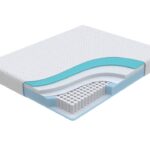Road trips can be a blast at any age. Scenic drives, quirky pit stops, freedom to go wherever the road leads—what’s not to love?
But when incontinence is part of the picture, especially for older folks, it can add a layer of stress that no one wants.
However, the good news is that you can absolutely manage incontinence and enjoy every mile of your road trip. How? With a bit of know-how and some smart planning.
So, buckle up; we’ll share how you can hit the open road with confidence, comfort, and minimal stress.
#1 Watch What You Eat and Drink
You know how certain foods can upset your stomach? The same goes for your bladder.
That morning cup of coffee? It might make you need to go to the bathroom more often.
WebMD notes that caffeine in coffee acts like a diuretic. It tells your body to make more urine. Alcohol can also irritate your bladder and mess with the signals between your brain and bladder. This disruption can lead to unexpected urges and potential accidents.
Foods and drinks that are high in acid, like citrus fruits and tomatoes, can also irritate the lining of your bladder.
Good old water is your best friend for staying hydrated without irritating your bladder. Sip throughout the day and avoid gulping down large amounts at once.
If you need a little flavor, try low-acid coffee, herbal teas that aren’t citrusy, or some diluted squash. For fruits, think about less acidic options like pears, blueberries, watermelon, or peaches.
#2 Dress Smart for the Ride
What you wear matters more than you think. Skip tight jeans or anything with a million buttons or zippers so that you can get to the bathroom quickly and without a wrestling match.
Loose-fitting pants with elastic waistbands would be great. They allow for better airflow and reduce friction.
Wearing layers can be a smart move. If you have a leak, you can remove a layer more easily. Darker colors as well as long shirts can be your friend. According to Harvard Health, dark colors and long shirts that cover your bottom work well to hide leaks.
Or, you can simply go for adaptive clothing. These are designed specifically for folks dealing with incontinence.
Some pants have handy side zippers or inseam openings. These make it super easy to change pads or incontinence underwear without having to take your pants off entirely.
#3 Pack a Discreet Incontinence Kit
Leaving your home without a small, discreet kit with all the essentials? That is one of the biggest mistakes you can make, especially on a road trip.
Trust me, having a go-to incontinence kit within arm’s reach can save you from a whole lot of stress and awkward situations.
Pack enough incontinence pads or underwear for your whole trip, plus a few extras just in case of delays or unexpected situations. Don’t forget your booster pads for extra absorbency, especially for those longer stretches between stops.
Pack some disposal bags. Opaque, sealable bags are best for discreetly getting rid of used pads or underwear. Some even have a scent to help with odors. Wet wipes are a must for keeping yourself clean and fresh, especially when you can’t get to a sink right away.
Don’t forget to pack a spare set of underwear and outer clothing in case of any accidents. A waterproof bag can be handy for storing any soiled items until you can wash them.
#4 Consider Long-Term Strategies for Bladder Health
These tips are great for managing incontinence on the road. But it’s equally important to think about maintaining good bladder health over time.
Keeping a healthy weight can really make a difference, as extra weight can put pressure on your bladder.
Transvaginal mesh implants can help treat urinary incontinence. But don’t go for them. Many transvaginal mesh implant devices put women’s health at risk.
Some injuries and complications linked with vaginal mesh include mesh erosion, organ perforation, and vaginal scarring and bleeding, reports TorHoerman Law. As a result, C.R. Bard, Ethicon, American Medical Systems, and Coloplast are facing lawsuits.
Lawyers estimate that transvaginal mesh settlement amounts can range between $150,000 and over $400,000. This shows the peril involved and underscores the need to look for safer alternatives.
Pelvic floor exercises, also known as Kegels, are an excellent alternative to transvaginal mesh implants. Doing them regularly can help strengthen the muscles that support your bladder.
To do them, Cleveland Clinic advises squeezing pelvic floor muscles for three seconds and then relaxing for another three seconds.
Bottom line? Incontinence doesn’t have to keep you homebound.
You can stay comfortable and confident from the first mile to the last with a little planning and preparation. Don’t let a leaky bladder put the brakes on your travel dreams. Adventure is out there—go chase it!




